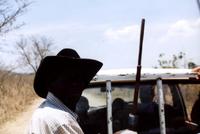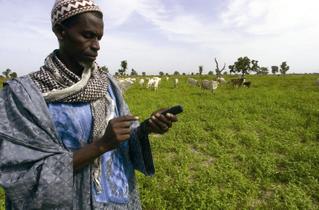
Cable modem not working in the middle of the rainforest? Get your own satellite connection anywhere in Africa! Simply buy the dish and rent out a signal from space. The satellite that has a 'footprint' in most of central and southern Africa is named Eutelsat WA3.
You can get an idea of the cost of 3 seperate VSAT access plans through Eutel, one of the major players in Africa. (And the next time you complain about access costs, remember these prices!)
Fees for Satellite Internet services from Eutel:
(1) Name of service: IP 512 Price: $530/month
Authorized protocols: FTP, HTTP, POP3/SMTP, IMAPDNS on UDP
Possible IP addresses: Up to 29 (8 public)
Volume limitation: 2 GB/ month
Downstream: 512 kbps
Downstream CIR for VoIP service: 20 kbps
Upstream: 128 kbps
Upstream CIR for VoIP service: 5 kbps
Recommended number of PC's: 1-5
(2) Name of service: IP 768 Price: $730/month
Authorized protocols: FTP, HTTP, POP3/SMTP, IMAPDNS on UDP
Possible IP addresses: Up to 28 (16 public)
Volume limitation: unlimited
Downstream: 768 kbps
Downstream CIR for VoIP service: 30 kbps
Upstream: 192 kbps
Upstream CIR for VoIP service: 7,55 kbps
Recommended number of PC's: 1-10
(3) Name of service: IP 1024 Prices: $995
Authorized protocols FTP, HTTP, POP3/SMTP, IMAPDNS on UDP
Possible IP addresses: Up to 28 (16 public)
Volume limitation: unlimited
Downstream: 1024 kbps
Downstream CIR for VoIP service: 40 kbps
Upstream: 256 kbps
Upstream CIR for VoIP service: 20 kbps
Recommended number of PC's: 1-15
 Hardware Costs for Dishes
Hardware Costs for DishesComplete Linkstar VSAT system 1.2m
Africa, Middle East, Asia $2450
Complete Linkstar VSAT system 1.8m
Africa, Middle East, Asia $3500-$3710 (depending on configuration)
Additional Ground EqupimentLinkstar VSAT terminal DVB, Channel Master antenna, New Japan Radio

































